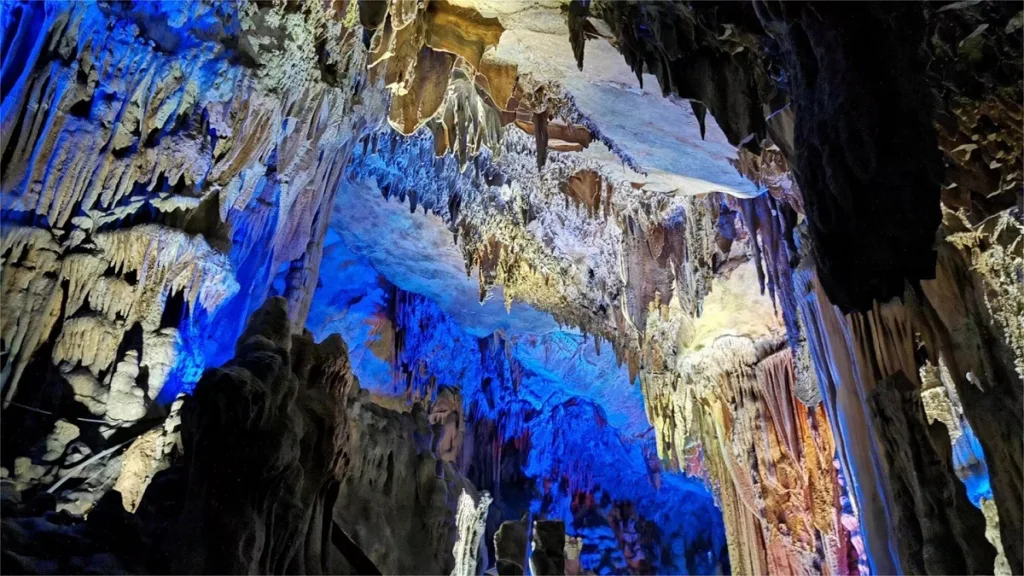Xinye Ancient Village (新叶古村), located in Jiande City, Zhejiang Province, was established in the twelfth year of the Jiajing period of the Southern Song Dynasty (1219 AD), boasting a history of nearly 800 years. It holds the most intact ancient lineage settlement architectural complex in Zhejiang Province, comprising 16 ancient ancestral halls, ancient pagodas, ancient temples, and over 200 ancient residential buildings. Renowned by experts in ancient architecture both domestically and internationally as the “Outdoor Museum of Chinese Ming and Qing Dynasty Architecture,” Xinye Ancient Village showcases the essence of traditional Chinese architecture.
The village follows a layout based on the Five Elements and Nine Palaces, resembling a labyrinth when explored. Its intricate network of hundreds of narrow streets divides the residents, yet forms an organic whole. The numerous ancestral halls within the village vary in size and rank, providing abundant original materials for the study of folk culture.
Table of Contents
- Basic Information
- Location and Transportation
- Highlights of Xinye Ancient Village
- Vlog about Xinye Ancient Village
- Other Attractions in Jiande
Basic Information
| Estimated Length of Tour | 2 hours |
| Ticket Price | Admission: Free Visiting Ancestral Halls: 68 RMB |
| Opening Hours | 24 hours a day |
| Telephone Number | 0086-0571-64169668 0086-0571-64169678 |
Location and Transportation
Xinye Ancient Village is situated in Daciyan Town, Jiande City, Hangzhou, Zhejiang Province, China. It is located approximately 6 kilometers away from the renowned Daciyan Scenic Area and 11 kilometers from the famous Zhuge Bagua Village.
Visitors from Hangzhou can take the high-speed train to Jiande City first. From there, they can proceed to Jiande Bus South Station and take a minibus to Xinye. Minibuses run approximately every half an hour, with a fare of around 8 yuan, and the journey takes about 1 hour.
Highlights of Xinye Ancient Village
Ancient Ancestral Halls

The village is renowned for its plethora of ancestral halls, each meticulously designed and representing a distinct aspect of its cultural heritage. The Youxu Hall, situated at the northern end and serving as the ancestral shrine of the Yuhua Ye lineage, holds a central position within the village’s structure, with the earliest residences flanking its sides. The Xishan Ancestral Hall, dating back to the Yuan Dynasty, holds significance as the ancestral temple of the Yuhua Ye lineage and is now part of the Xinye Elementary School. Standing tall and spacious, the Chongren Hall surpasses both the ancestral shrine and the Youxu Hall in scale, boasting a four-courtyard layout with a total depth of 26 meters.

Beyond their role in ancestral worship, the ancestral halls of Xinye serve multifaceted functions. They house meeting rooms where clan matters are discussed and private laws are enforced, serving as venues for important ceremonial activities. Noteworthy among the architectural features of these halls are the intricate wood carvings adorning beams, brackets, and archways. Depicting figures, mythical creatures, birds, and intricate patterns, these carvings reflect the meticulous craftsmanship and aesthetic sensibilities of the ancient artisans. Symbolism abounds in these carvings, with lions representing power and warding off evil, deer symbolizing prosperity, horses embodying lofty aspirations, and bats symbolizing good fortune.
Stone-Paved Pathways

Despite being a closed clan society, Xinye Village has a tradition of cultural openness, particularly concerning education. Like many affluent families in the Jiangnan region, the villagers of Xinye have long prioritized education, establishing academies, private schools, charity schools, and official schools within the village. Intersecting the labyrinthine streets and alleys of Xinye are stone-paved pathways, meticulously laid out to facilitate access to education. These pathways, consisting of large stone slabs, prevent scholars from stepping into mud or getting their shoes wet during rainy weather, ensuring unimpeded access to schools. Each of these stone pathways serves as a symbolic conduit to knowledge and enlightenment, reinforcing the village’s commitment to education and intellectual pursuits.
Cloud-Embracing Pagoda Complex

At the entrance of Xinye Village stands a remarkable trio of structures: the Cloud-Embracing Pagoda, Wenchang Pavilion, and Earth God Temple. The Cloud-Embracing Pagoda, dating back to the Ming Dynasty, captivates with its elegant and dignified silhouette, devoid of any ornate carvings. Serving as a feng shui tower, it is also known locally as the Wenchang Pagoda, symbolizing aspirations for academic success. Over 300 years after the construction of the Wenchang Pagoda, a companion structure, the Wenchang Pavilion, was erected at its base during the Qing Dynasty, similarly aimed at enhancing scholarly pursuits. Adjacent to the pavilion, on the northern side, stands the Earth God Temple, symbolizing blessings for agricultural prosperity. Together, these three structures reflect the ideals and aspirations of the Ye family lineage, embodying a harmonious blend of scholarly pursuit and agricultural heritage.
3rd March Festival

An event that eclipses even traditional festivals like the Mid-Autumn Festival and the Spring Festival in the hearts and minds of the Ye clan, the Lunar Calendar 3rd March festival is celebrated with great pomp and fervor in Xinye Village. This grand ancestral worship ceremony is presided over by the five branches of the Ye clan – Chongren, Chongzhi, Chongde, Chongyi, and Yuqing – rotating leadership according to the Chinese zodiac. The festivities are marked by lively processions and rituals, where affluent families contribute funds while others offer their labor, creating an atmosphere of unparalleled joy and community spirit.
Xinye Kunqu Opera

Xinye Kunqu Opera represents a unique lineage of this traditional art form, originating from the Jinhua Kunqu Opera tradition of the late Qing Dynasty and preserved in the village of Xinye in Jiande City, Zhejiang Province. Distinguished by its earthy essence and distinct regional flavor, Xinye Kunqu Opera exudes a fragrance of authenticity, deviating from the typical courtly elegance associated with Kunqu opera. This cultural treasure, intertwined with the local history and customs of Xinye Village, serves as a captivating reminder of the enduring legacy of performing arts in the region.




